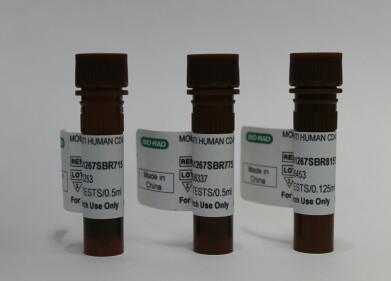Laboratory Products
Will Anti-Vaxxers Impact Our Immunity?
Dec 24 2020
Most people have been eagerly anticipating a COVID-19 vaccine, though scientists are warning a niche group known as anti-vaxxers could compromise its efficacy. While vaccines are generally considered one of the safest and most effective ways to prevent the spread of infectious diseases, many people see them as a breach on human rights, claiming they are unsafe and can cause side effects such as autism.
This is a dangerous attitude, with health experts warning even a small percentage of unvaccinated people could support a re-emergence of infectious diseases that have almost been eliminated. Anti-vaxxers also compromise herd immunity protection for people who cannot receive vaccines due to allergic reactions or other health conditions.
Social media fuelling anti-vaxx movement
A new report from the Centre for Countering Digital Hate (CCDH) has slammed social media giants for supporting the movement, with authors saying anti-vaxxer accounts have gained almost 8 million new followers since 2019.
“The decision to continue hosting known misinformation content and actors left online anti-vaxxers ready to pounce on the opportunity presented by coronavirus,” states the report.
Currently, Facebook supports a community of around 31 million anti-vaxxers. A further 17 million subscribe to ani-vaccine YouTube channels. In total the groups generate a huge US$1 billion in annual revenue for social media titans such as Facebook, Instagram and YouTube, produced largely by targeted advertising. The report continues with a warning that the rapidly growing anti-vaccine movement could undermine the efficacy of the new COVID-19 vaccines and put the health of the global population at risk.
One in six Brits against COVID-19 vaccine
The CCDH followed up with a survey of British attitudes towards the COVID-19 vaccine. Of a group of more than 1600, around one in six respondents were unlikely to seek out a non-mandatory vaccine, with a similar proportion undecided. The study found a direct correlation with negative or suspicious attitudes towards vaccines and the use of social media as a source of information.
A study from Reuters supports the dangers of false information, with almost 35% of respondents reporting seeing “a lot or a great deal of false or misleading” information surrounding COVID-19 and the new vaccines. Imran Ahmed, founder and CEO of CCDH says social media companies must step up and shut down the groups before they gain momentum.
“The first step is to de-platform”, he asserts. “Shutting down spaces and de-platforming individuals is the single most effective tool for dealing with these sorts of malign actors.” Referring to counterterrorism strategies, Amed says de-platforming “is the one thing that absolutely works. It cripples the networks and it is the best way to stop the anti-vaxx infection from spreading.”
Want to know more about how scientists are working to safeguard public health? Don’t miss ‘Time to integrate: how advanced informatics enables automation, optimisation and compliance.’
Digital Edition
Lab Asia 31.2 April 2024
April 2024
In This Edition Chromatography Articles - Approaches to troubleshooting an SPE method for the analysis of oligonucleotides (pt i) - High-precision liquid flow processes demand full fluidic c...
View all digital editions
Events
InformEx Zone at CPhl North America
May 07 2024 Pennsylvania, PA, USA
May 14 2024 Oklahoma City, OK, USA
May 15 2024 Birmingham, UK
May 21 2024 Lagos, Nigeria
May 22 2024 Basel, Switzerland







.jpg)










